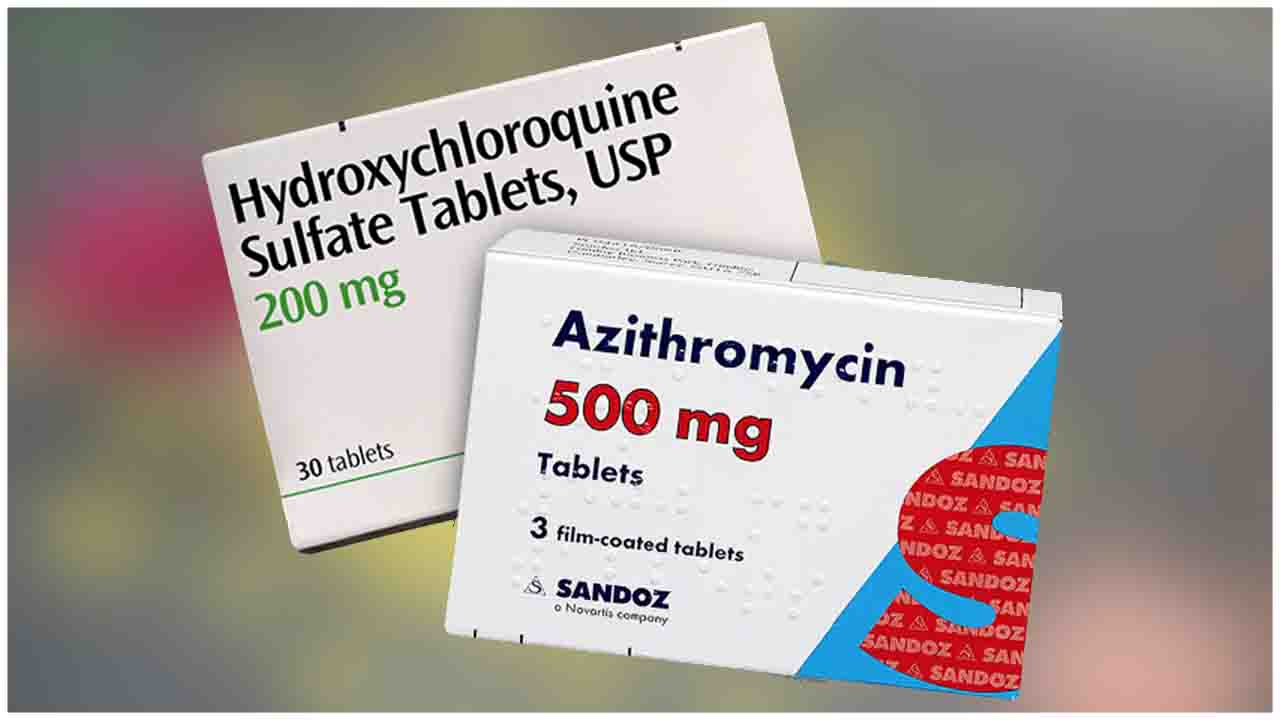The Union Health Ministry is probably going to revise protocols for the utilization of azithromycin together with anti-malarial drug hydroxychloroquine (HCQ) for the treatment of patients with the severe novel Coronavirus admitted in hospitals.
Reportedly, the matter has confirmed that the fresh treatment protocol, already getting used in AIIMS Delhi, doesn't mention the utilization of azithromycin as an administered drug alongside HCQ. The combination was earlier recommended by the ICMR. The ministry is probably going to make the new treatment protocol public soon.
"Use of azithromycin with hydroxychloroquine should be avoided as both prolong the interval between two waves in ECG also referred to as QTc prolongation. It causes heart problems. One can substitute doxycycline or amoxycyclin+ clavulanic acid as they're not known to cause this heart-related toxicity," a top ICMR official was quoted as saying.
Dr. Naveet Wig, Head of Department of drugs, AIIMS, and a member of the national task force on clinical research said was quoted saying, "For moderate to severe patients, the foremost important aspect is oxygenation. Anti-virals aren't being seen as effective within the cure of coronavirus. The treatment has evolved over time. Initially, azithromycin and HCQ was being given. Over time, with studies, we saw azithromycin are often avoided."
However, Dr. Wig cautioned that "these combinations depend upon a case-to-case basis. Guidelines should only be used as a guide".
"Anti-virals only act early within the case, then there's a requirement for anti-inflammatories. However, most stress is given on oxygenation within the initial stages," he further pointed out. Initially, azithromycin was given to the patients sometimes as there might be an opportunity of the patient developing a bacterial infection after testing positive for Covid-19.
Azithromycin is an antibiotic that stops the expansion of bacteria. It is primarily prescribed to treat various sorts of bacterial infections, including pneumonia, some sexually-transmitted diseases, bronchitis, and certain infections of the ear, throat, lungs, and sinuses. Azithromycin is usually prescribed to treat pertussis. The US National Library of drugs had said that this drug doesn't work for viral infections like cold or flu.
Some people are allergic to azithromycin and this drug is usually not given to those with liver conditions like jaundice.
Various studies are done thus far to check the effectiveness of azithromycin together with HCQ for the treatment of COVID-19 patients. In March, a study wiped out France suggested that azithromycin supplemented the consequences of HCQ in reducing viral load in Covid-19 patients.
However, another French study and a study wiped out the US said that the mixture of the 2 drugs was ineffective. The US study remains within the preprint phase and is yet to be peer-reviewed.

 The ministry is probably going to make the new treatment protocol public soon
The ministry is probably going to make the new treatment protocol public soon



















.jpeg)








.jpg)




.jpg)




